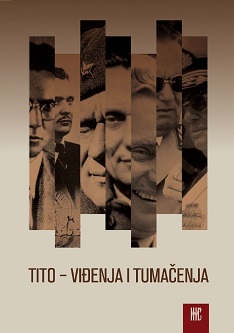„I posle Tita – Tito”. Održavanje i rušenje Titovog kulta u Srbiji 1980-1990.
„Even After Tito – Tito”. Bolstering and Destroying Tito's Cult in Serbia 1980-1990
Author(s): Kosta Nikolić
Subject(s): Cultural history, History of ideas, Political history, Sociology of Culture, History of Communism, Sociology of Politics
Published by: Institut za noviju istoriju Srbije
Keywords: Yugoslavia; socialism; ideology; personality cult; anticommunism; political system;
Summary/Abstract: The Yugoslav political system was an attempt to create a new reality in virtue of the principles of „communist philosophy of history" (scientific socialism), shaping it and managing it The one-party power of CPY/UCY was the result, but also Tito’s personal power. His cult in Serbia was part of the political identity and no-one questioned itutil mid 1980s when political processes that would lead to the break-up of Yugoslavia started. A historical phenomenon occurred in Serbia at that time where the ruling political oligarchy still respected the „person and the work" of Josip Broz, but transformed it in keeping with its political tenets, using only those elements of the cult that were useful at a given moment. At the end of that process, Tito’s cult in Serbia was completely abandoned but Serbia still remained a typical ideocratic state, because the ideology of class was substituted for the ideology of nation.
Book: Tito - Viđenja i tumačenja
- Page Range: 760-778
- Page Count: 19
- Publication Year: 2011
- Language: Serbian
- Content File-PDF

